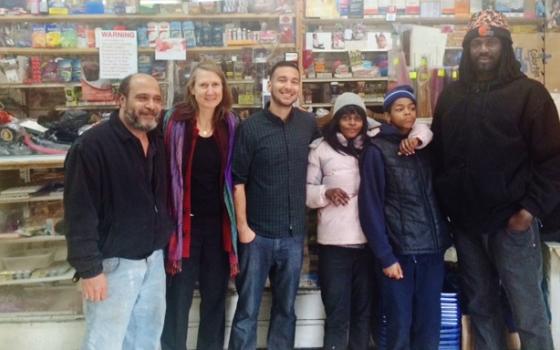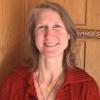For those of us ministering at Precious Blood Ministry of Reconciliation on Chicago's South Side, Pope Francis' declaration of a Year of Mercy for 2016 was a welcome panacea. Last year Chicago mourned the deaths of 468 people who were murdered. Our city had more homicides in 2015 than any other U.S. city, according to The Chicago Tribune.
The shooting death of an innocent 9-year-old boy and the November release of a police dashcam video showing a white police officer shooting a 17-year-old black male 16 times and killing him have the city heartbroken and enraged.
But last month, on the very day the Year of Mercy commenced, something unusual and hopeful occurred in Chicago. A "City-Wide Day of Healing" took place with peace circles being held throughout the city. What better way to ring in the Year of Mercy than with peace circles aimed at bringing healing to a city reeling from violence and mistrust?
The Day of Healing was sponsored by the Precious Blood Center and several civic organizations committed to restorative justice and fostering reconciliation in Chicago's neighborhoods. Last spring, as part of my orientation with the Precious Blood Center, I participated in a circle training which prepared 19 of us from diverse backgrounds and careers to facilitate peace circles. It opened my eyes to the need for them in our city and their value as a vehicle of restorative justice. I was grateful for the opportunity to enter into this unique and creative world of circle-keeping, which invites people to relate and communicate in healthy and healing ways.
Peace circles provide a level playing field by ensuring each person's voice is heard and by creating a safe space to share feelings and experiences — to ultimately come to a better understanding of each other. In this way, an atmosphere of confidentiality, trust and respect is created. Circles offer a structure and process for listening and understanding one another in a way that is rarely used and greatly needed in our society.
Circles are well received by diverse populations from youth to adults, across race, culture and gender lines, despite the counter-cultural nature of their intentionally slow pace, emphasis on listening, quieting of the body and spirit, and fostering relationships of respect.
I was excited about the potential of our city-wide effort to open a window of opportunity for community members, who traditionally feel that they are not heard, to speak their truth.
The South Side, considered by some as the ugly step-sister to the more affluent and resource-rich North Side, suffers from unemployment, lack of opportunity, gang activity, drugs and poor schools. These factors contribute to the poverty and violence that is a way of life for most residents in the Back of the Yards, one of several impoverished neighborhoods on the South Side where our center is located.
On the City-Wide Day of Healing, upwards of 25 peace circles took place at schools, shelters, organizations, and in neighborhoods. We had a total of six circles in and around our center, including one in Spanish. One was held at our local corner store, the site of shootings and gang activity.
In one circle at our center, approximately 25 people, including three Chicago police officers and youth and mothers from our neighborhood, joined Precious Blood staff and volunteers. As we gathered, several spoke of their excitement, anticipation and hope. Others expressed their sadness and despair in the wake of the violence plaguing our city.
The first question posed for reflection and sharing was, "What is the greatest need in our community? One by one, each conveyed his/her feelings. One mother said, "We need to be neighbor to one another, to talk with each other more, like we used to." One of our youth told of the need for more activities and job opportunities in the neighborhood. I suggested better communication and relationship-building between police and our community. The sharing was honest, personal and powerful, with both deeply challenging and hope-filled ideas. Fr. Dave Kelly, the executive director of the center, articulated what I think is most important of all: "Instilling in our youth the truth of their goodness and giftedness."
The second question presented was: "What do you struggle with?" One police officer shared her heartfelt struggle and challenge of being a wife, sister, friend, police officer and mother of an African American teenage boy. A young man from the neighborhood spoke of his mother's daily pleading that he cut off his dreadlocks because of the perception of the police and other authorities that dreads indicate gang-banging or drug-dealing. She constantly fears for his safety. Others voiced feelings of helplessness in a community filled with violence. We all recognized that the needs and struggles of our community are complex and multilayered — with no quick fix.
The circle closed with words of gratitude, encouragement and hope. Having police officers, youth and mothers all listening and sharing openly and honestly was a profound experience, quietly christening the Year of Mercy in Chicago.
As a result of what we learned through our City-Wide Day of Healing, we are committed to inviting our local police and elected representatives to join us at the Restorative Justice Café, our monthly luncheon gathering, in an effort to build relationships of trust and respect with the youth in our community. Let the Year of Mercy begin!
[Janet M. Ryan is a Clinton Iowa Franciscan sister ministering part time at Precious Blood Ministry of Reconciliation while pursuing her third unit of Clinical Pastoral Education through Chicago Urban CPE.]

